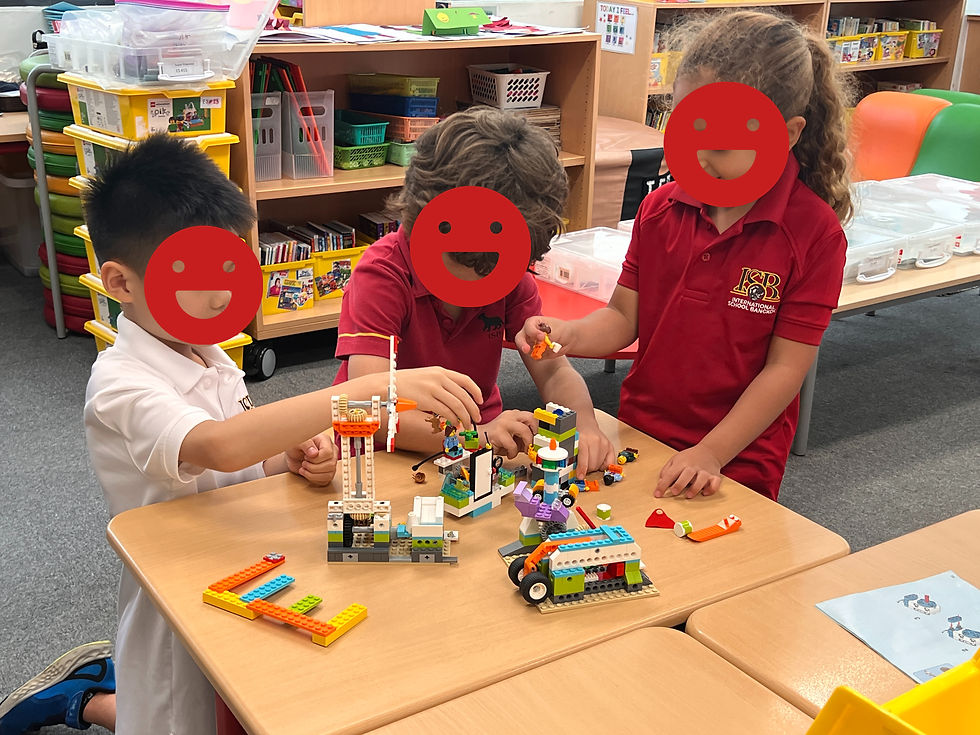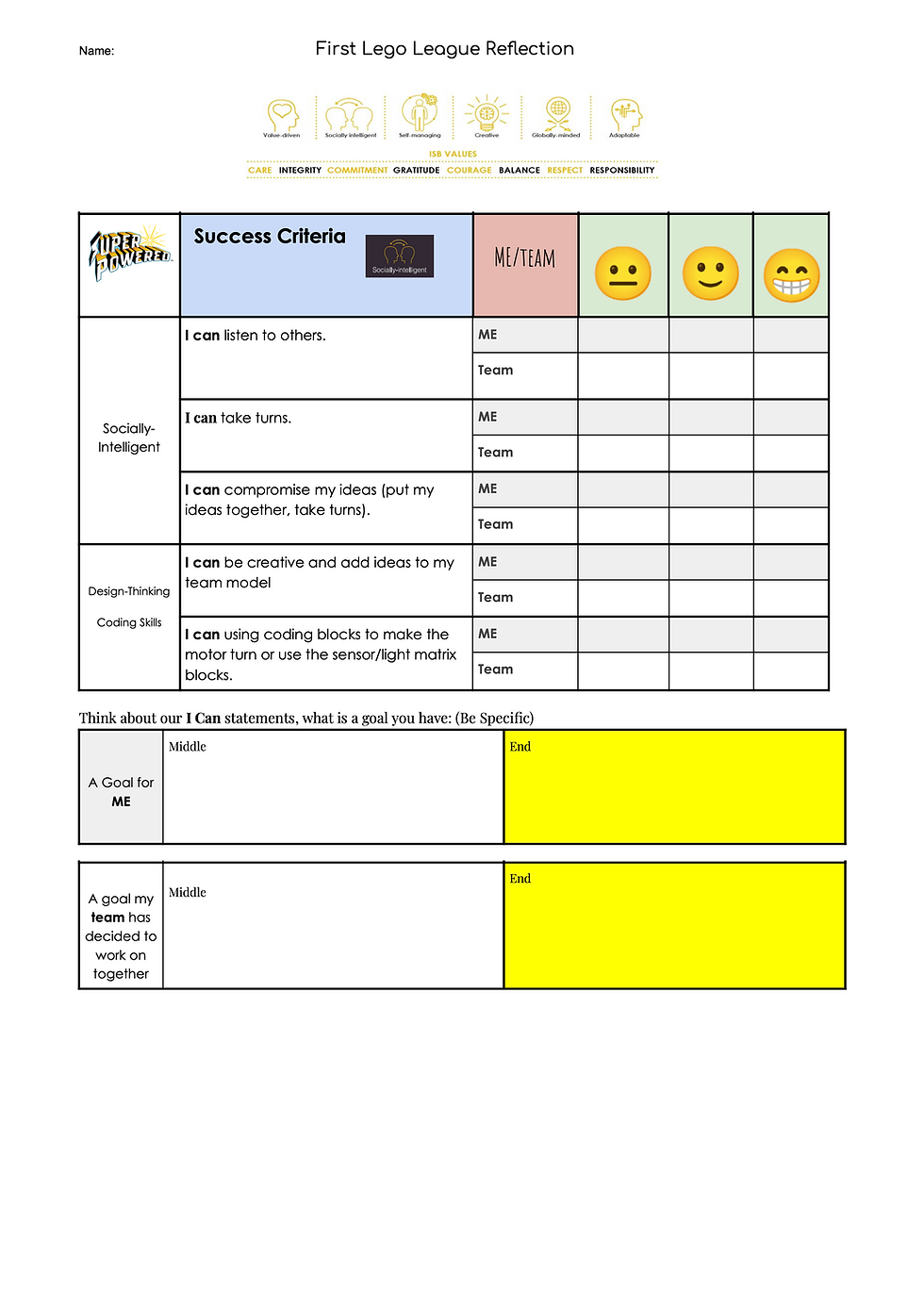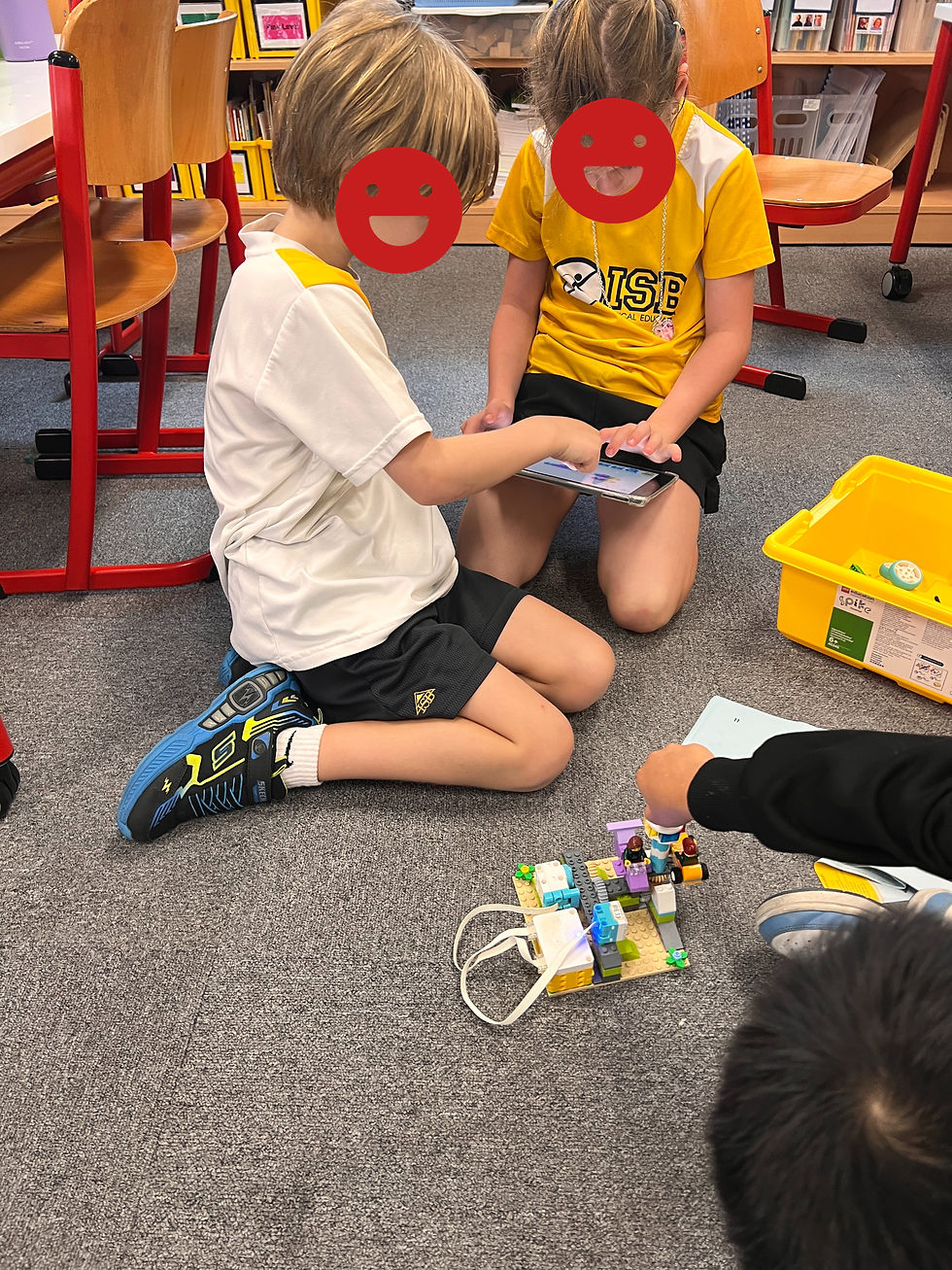Using First Lego League Explore to Teach Collaboration in Grade 2
- markmarshall
- Feb 6, 2024
- 2 min read
Updated: Sep 25, 2025
This year marks our third cycle of implementing the First Lego League Explore program in Grade 2. While the program is often seen as an entry point to coding and engineering, our team has intentionally leveraged it as a vehicle for developing teamwork and collaboration skills.

Originally framed as a six week design unit, the structure involves guiding students through themed Lego model builds. We chose the 2022–23 “Superpowered” theme, which explored sustainable energy production and conservation. Although students were exposed to relevant science concepts, our instructional focus was on process rather than content knowledge.

Each group adopted a team name, rotated through defined roles (Lego finder, coder, builder, etc.), and collaboratively built models such as a carousel, wind turbine, and energy storage system. Importantly, students were encouraged to innovate beyond the guided builds, adding parts, modifying designs, and applying their own creative solutions.
As a PLC, our Grade 2 team identified the school attribute socially intelligent as the central goal for this unit. We wanted to deliberately teach strategies for listening, taking turns, compromising, and integrating ideas. To support this, we co-developed a student reflection rubric where learners assessed themselves and their teams on collaboration skills, alongside design thinking and coding competencies. Students set both personal and team goals, tracked progress, and revisited these goals throughout the unit.

The result was a unit that was highly engaging, grounded in authentic teamwork, and aligned with our learner attributes. Students gained confidence with coding and engineering while simultaneously practicing the vital skills of collaboration and compromise, skills that transfer directly into all areas of learning.

For us as educators, this unit demonstrates how a program like FLL Explore can be reframed, not just as a STEM experience, but as a powerful structure for social emotional skill development when approached through a collaborative, attribute driven lens.





Comments